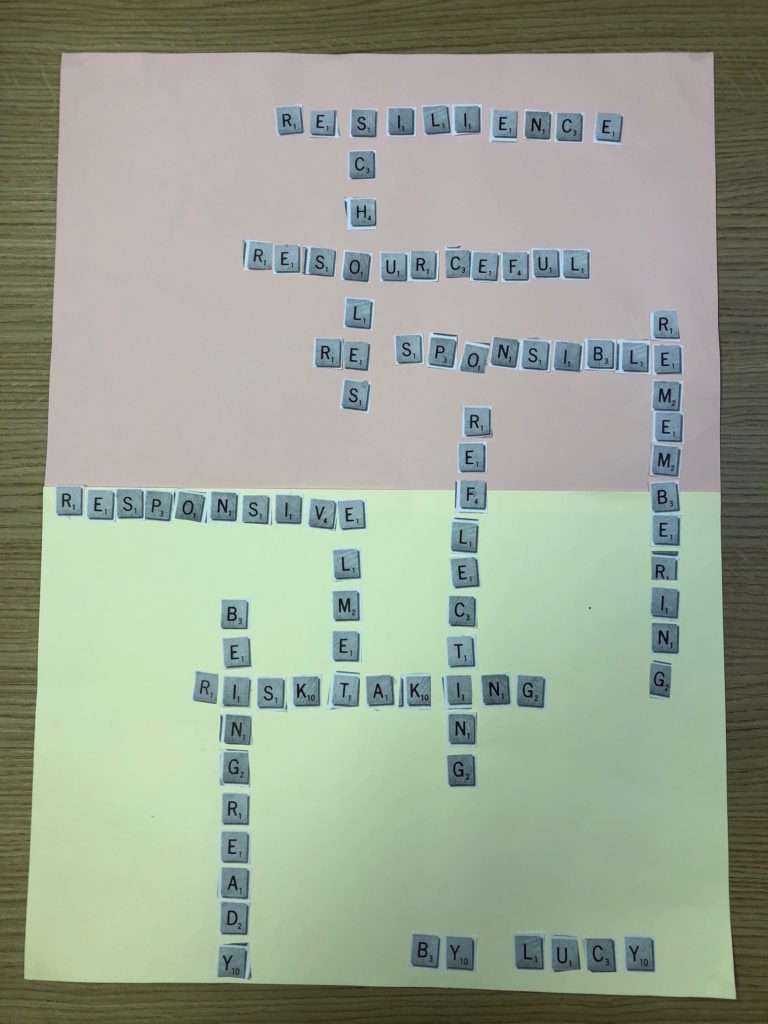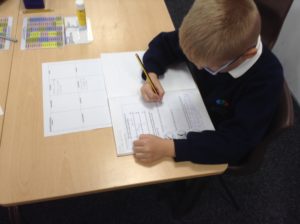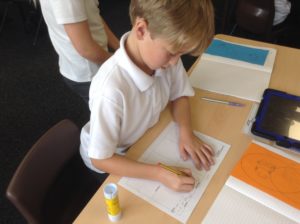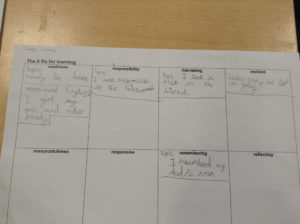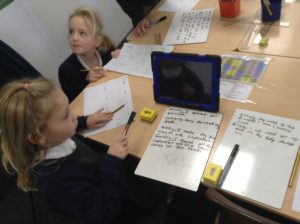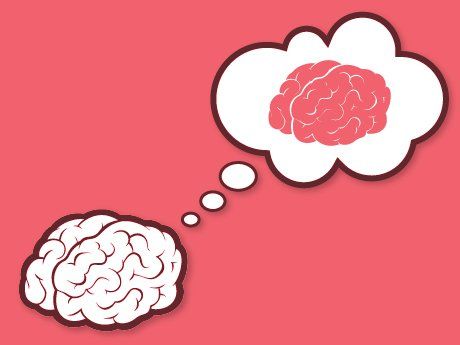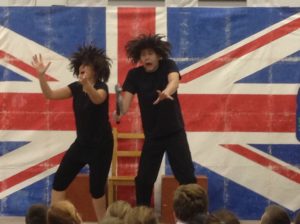Our Living and Learning this week has been to remember and reflect on what we learn. As learners, we store information through our sensory system which sends information to our brains. In class, we have looked at ways in which we remember best and not forget.
Visual Memory Games:
Look at a try of objects …

Count, visualise, remember …

Then write down what you saw…

Then check your memory… and try again to improve.
Auditory Memory:
We also tested our memory skills by learning a poem off by heart.

First, we read it together, read it to our partner and read it to ourselves. Then we added a steady beat by clicking or clapping. This musical element really helped us remember the lines.
Why not try it together at home?
https://www.poetryarchive.org/poem/walking-my-iguana
For homework this week, we are asking the children to remember a poem off by heart. Ask your child about the best ways to remember their learning and have fun!
Playing Games:
Play matching games online or with cards for learning times tables facts and spellings. Engage the learner through fun tasks so that it is more memorable.

